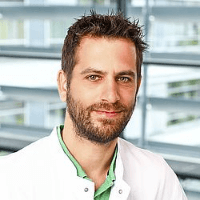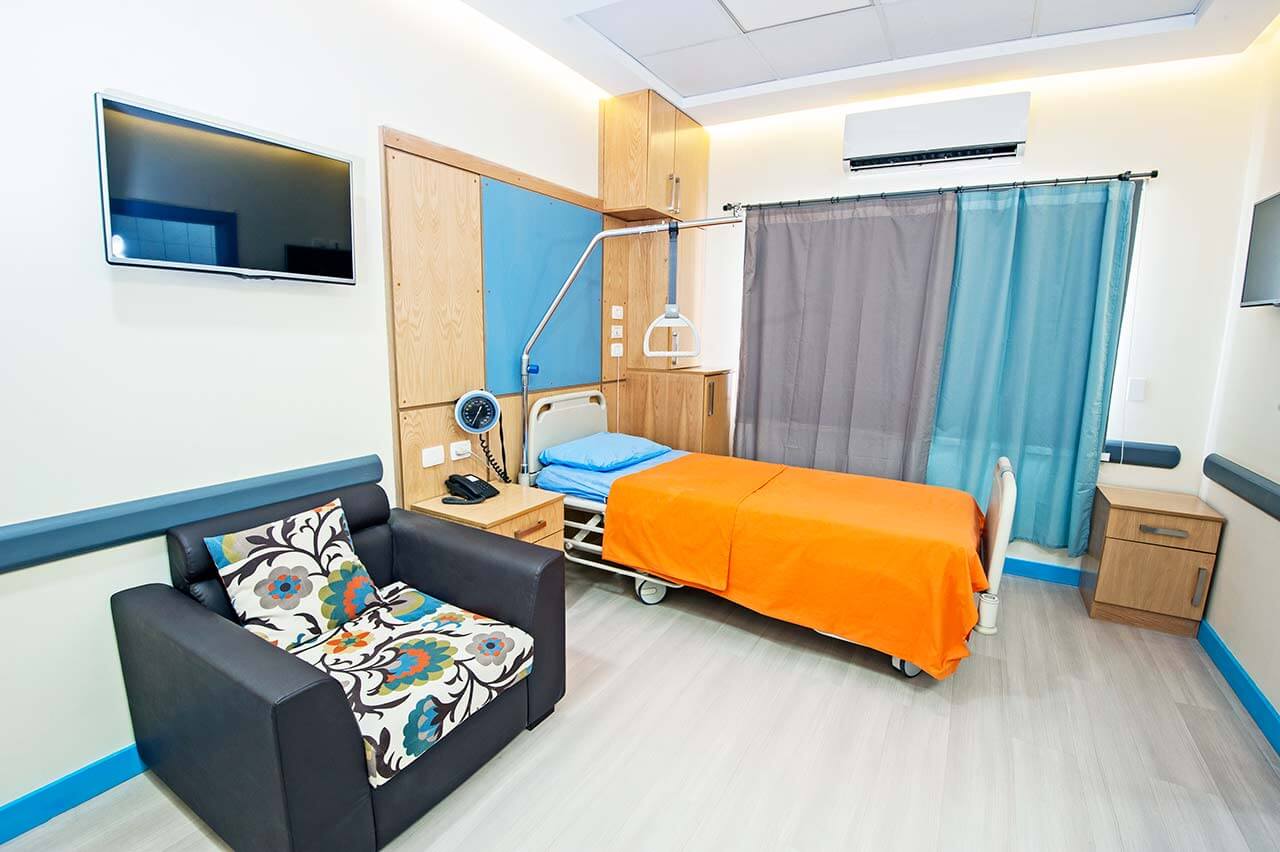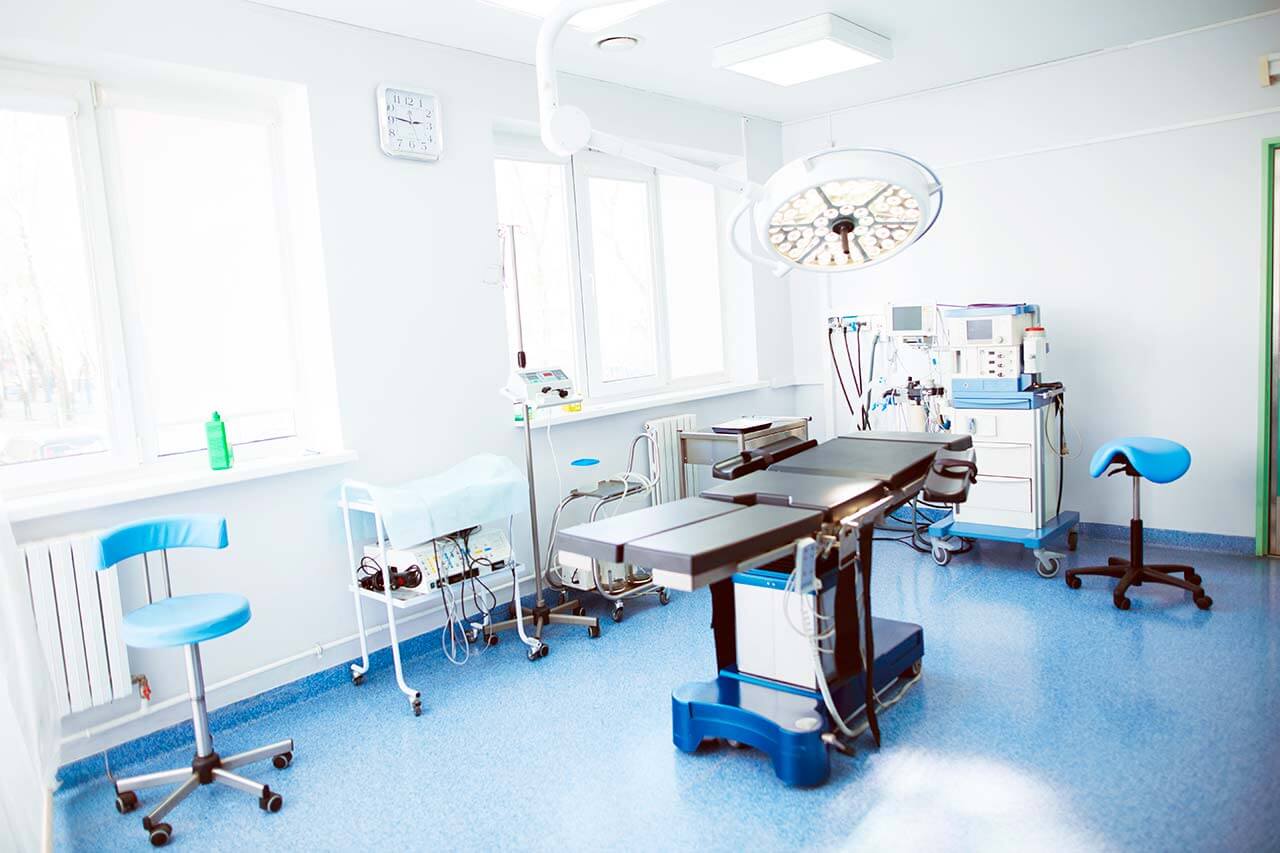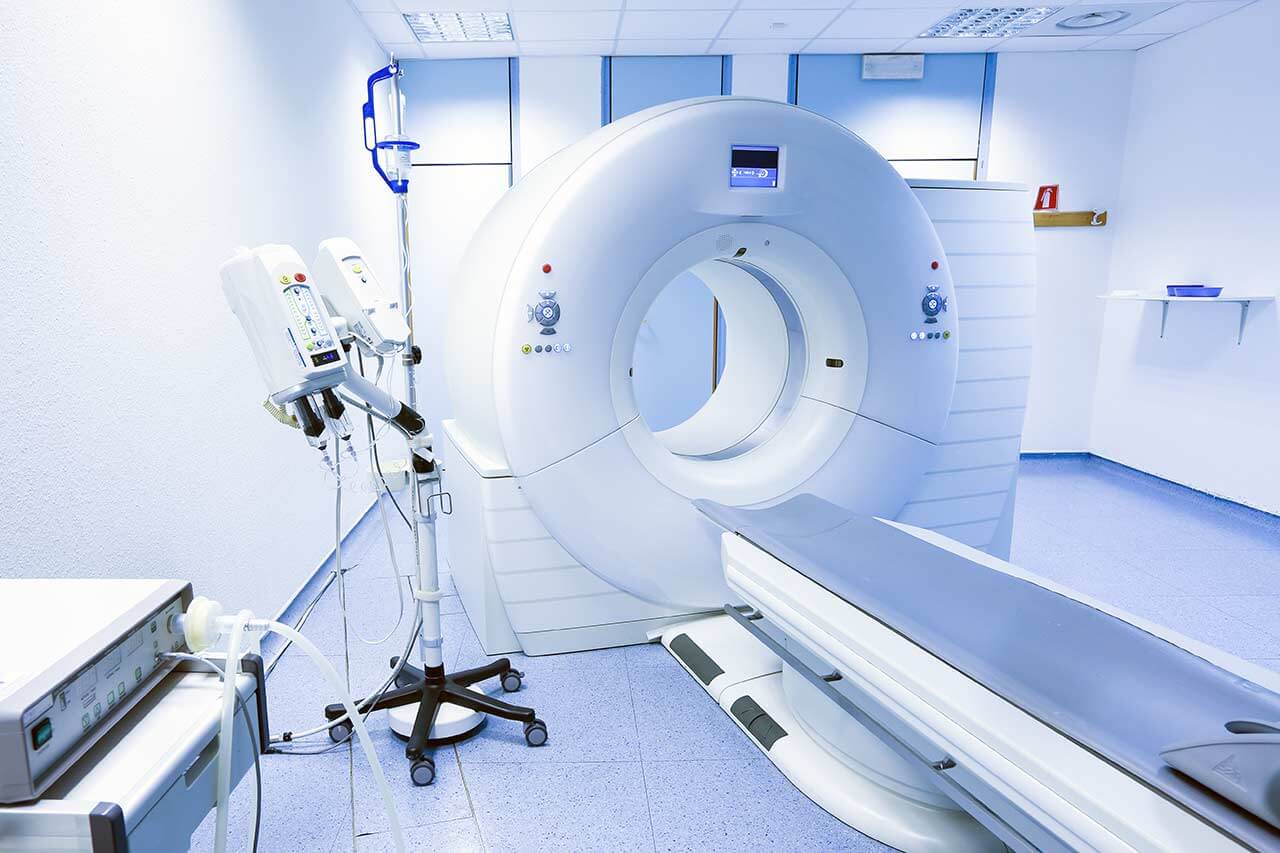
The program includes:
- Initial presentation in the clinic
- clinical history taking
- review of medical records
- physical examination
- laboratory tests:
- complete blood count
- general urine analysis
- biochemical analysis of blood
- inflammation markers (CRP, ESR)
- blood coagulation analysis (aPTT, PT, INR)
- hormone test (estradiol, progesterone, prolactin, DHEA-s, FSH, LH)
- gynecological examination.
- ultrasound examination: pelvis, abdomen, thyroid gland, breasts
- nursing services
- consultation of related specialists
- treatment by chief physician and all leading experts
- explanation of individual treatment plan
Required documents
- Medical records
Service
You may also book:
 BookingHealth Price from:
BookingHealth Price from:
About the department
The Department of Pediatric Endocrinology at the Municipal Hospital Karlsruhe offers the full range of services in this medical field. The department's competence includes the diagnostics and treatment of endocrine disorders, including diabetes mellitus and hormonal imbalances in newborns, children and adolescents. Here one can get medical care on both an outpatient and inpatient basis. To treat type 1 diabetes mellitus, which is the most common in children, the department's doctors use insulin therapy, diet therapy, therapeutic exercises and other methods. Hormonal imbalances are treated with the help of modern medications. The department has gained a special reputation in the treatment of diabetes mellitus in children and is now certified by the German Diabetes Society (DDG). Young patients are treated by a highly qualified team of doctors who get along well with children and provide optimal treatment at a high level. The Head Physician of the department is Dr. med. Andreas Veigel.
The department gives priority to an integrated approach to treatment, therefore, it maintains close cooperation with the Departments of Pediatric Radiology, Pediatric Surgery, Human Genetics, Pediatric Oncology and others. The basis of clinical practice is the use of advanced treatment methods, the very latest drugs, which allow the doctors to achieve a complete elimination of the pathology or maintain a satisfactory state of health of the child. At the same time, the doctors of the medical facility are always friendly with young patients and support them in every possible manner on their way to recovery.
In the field of endocrinology, priority clinical focuses are on the treatment of growth disorders, puberty disorders, bone metabolism disorders, diseases of the thyroid, adrenal and pituitary glands. During the diagnostics, comprehensive laboratory tests are carried out. If a thyroid pathology is suspected, an ultrasound scan is also performed. Depending on the particular clinical indicators, the most effective treatment regimen is selected for each child, which will ensure compensation for the pathology and the proper development of the young organism.
The department is distinguished by its unique competencies in the treatment of diabetes mellitus in children and has been certified by the German Diabetes Society. More than 200 children with diabetes mellitus receive medical care here every year. The high-quality drug therapy is selected for the patients. They can also take part in training programs, or individual and group sessions. The department's specialists provide patients with all the necessary information about the nature of the disease, treatment, preventive measures and other aspects related to the presence of diabetes mellitus. Obviously, special attention is paid to counseling parents so that they understand all the features of lifestyle modifications required for this pathology. The main treatment method for diabetes mellitus is insulin therapy, accompanied by a proper diet, as well as psychological support for the child and his family. When starting diabetes mellitus treatment, the department's specialists always set themselves the goal of ensuring a normal physical, mental and social development for their young patient.
The department's clinical focuses include:
- Diagnostics and treatment of growth disorders
- Short stature (treatment with or without a growth hormone)
- Gigantism (growth-slowing therapy, if required)
- Diagnostics and treatment of thyroid diseases
- Congenital hypothyroidism or absence of the thyroid gland
- Hypothyroidism or thyrotoxicosis in childhood and adolescence, such as in Hashimoto's thyroiditis and Basedow's disease
- Enlarged thyroid gland (goiter)
- Diagnostics and treatment of puberty disorders
- Delayed or impaired puberty
- Menstrual irregularities in girls, including polycystic ovary syndrome
- Diagnostics and treatment of adrenal diseases
- Adrenogenital syndrome
- Hypercorticism or hypercorticism syndromes
- Adrenal diseases, accompanied by arterial hypertension
- Diagnostics and treatment of sexual maturation disorders
- Abnormalities of the external genitalia (for example, adrenogenital syndrome, chromosomal abnormalities such as Ullrich-Turner syndrome, Klinefelter syndrome, or gonadal dysgenesis)
- Diagnostics and treatment of pituitary diseases
- Diagnostics and treatment of bone metabolism disorders
- Rickets
- Phosphate diabetes
- Osteodystrophy
- Osteopenia
- Hypoparathyroidism
- Diagnostics and treatment of type 1 and type 2 diabetes mellitus, including genetic forms of the pathology, in children: insulin therapy, training on the proper lifestyle with diabetes mellitus and psychological support
- Other medical services
Photo of the doctor: (c) Städtische Klinikum Karlsruhe
About hospital
The Municipal Hospital Karlsruhe is a modern maximum care medical facility, which combines a long tradition and the advanced achievements of modern medicine. The hospital operates on the basis of the University of Freiburg, so scientific innovations in the field of diagnostics and treatment are continuously introduced into practice here. The hospital presents almost all areas of modern medicine, including many medical services for young patients.
A highly qualified and experienced team of more than 4,500 employees provides impeccable medical care. The medical facility has 1,571 beds for the hospitalization of its patients. The hospital admits more than 63,000 inpatients and about 186,000 outpatients annually. A large number of patients wishing to receive medical care in the hospital speak for themselves and are a confirmation of the exceptional service, as well as the effectiveness of the treatment provided.
The quality management system of the hospital's medical care is certified in accordance with the DIN EN ISO 9001 standards. Since 2016, the hospital has implemented a regular quality control in compliance with the strict standards of the Initiative Quality Medicine (IQM). In addition, almost all departments of the hospital have numerous certificates in their areas of specialization, including certificates from the German Cancer Society (DKG), the German Society for General and Visceral Surgery (DGAV), the German Cardiac Society (DGK), the German Diabetes Society (DDG), the German Society of Nephrology (DGN), the German Trauma Society (DGU), etc.
The main value of the hospital's staff is the health and satisfaction of their patients, so a respect and a humane attitude towards each patient remain priorities. The doctors and nursing staff support each patient in every possible way on their path to recovery. The specialists also strive to perform the most sparing, but at the same time the most effective and safe treatment.
Photo: (с) depositphotos
Accommodation in hospital
Patients rooms
The patients of the Municipal Hospital Karlsruhe live in cozy patient rooms with everything necessary for a comfortable stay. Standard patient room furnishing includes an automatically adjustable bed, a bedside table, a TV, and a telephone. The patient rooms have Wi-Fi. Each patient room also has an ensuite bathroom with a shower and a toilet.
The patient rooms in the pediatric departments are specially designed for children, so that young patients feel at home. Children can live in their patient room with one of their parents. There are also special playrooms designed for children.
Meals and Menus
The patients of the hospital are offered tasty and varied three meals a day: breakfast, lunch and dinner. The menu also features dietary meals. The kitchen staff will gladly accept all the individual wishes of patients.
The hospital also has a cozy cafe where one can have a tasty snack, drink tea, coffee and soft drinks.
Further details
Standard rooms include:
Religion
The hospital has two chapels that regularly host Protestant, Catholic, and Ecumenical worship services. A patient can watch the broadcast of the worship on TV channels in his own room, if desired.
Accompanying person
Your accompanying person may stay with you in your patient room or at the hotel of your choice during the inpatient program.
Hotel
You may stay at the hotel of your choice during the outpatient program. Our managers will support you for selecting the best option.





